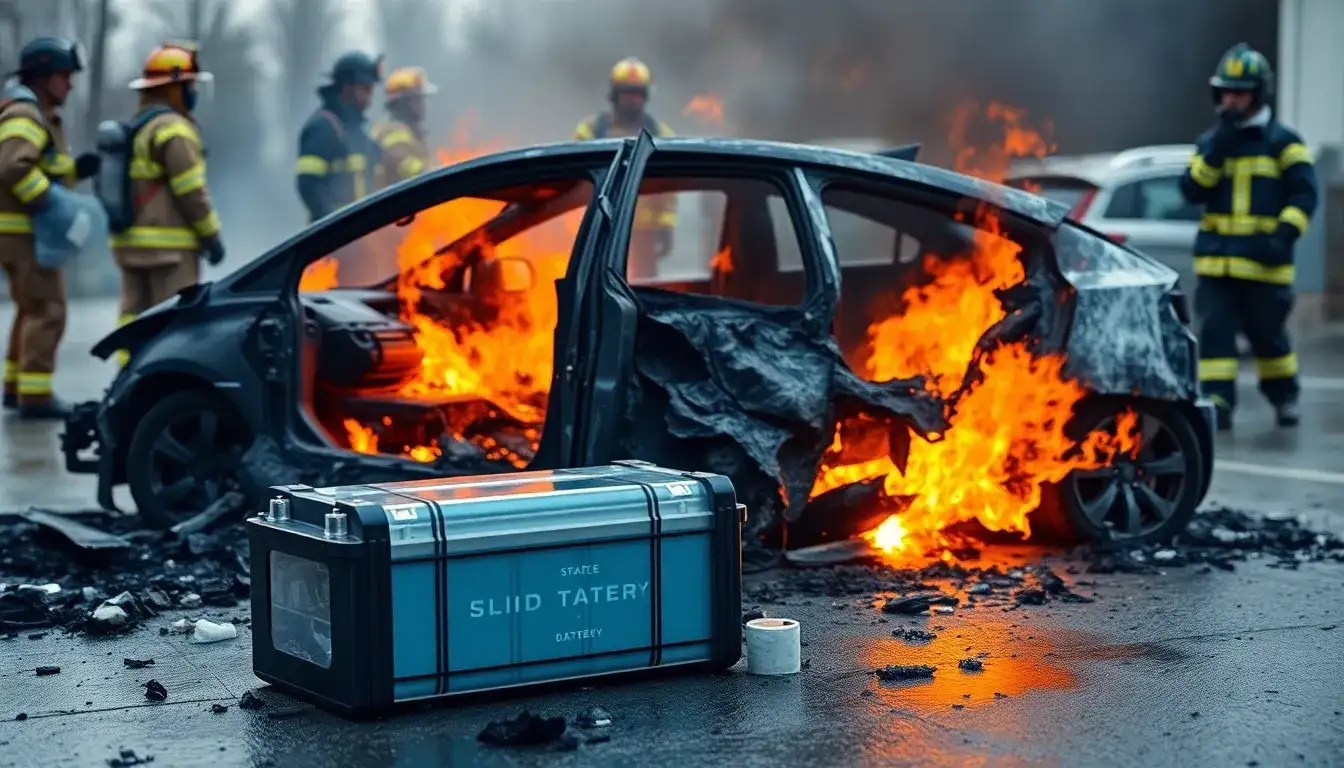
On March 29, a tragic incident occurred when an electric vehicle crashed into a concrete barrier on the highway, resulting in the deaths of three young female university students. As a writer with nearly a decade of experience in popular science, having penned numerous articles about electric vehicles and batteries, I want to share my fundamental personal perspective: until solid-state battery technology becomes available, I will never consider purchasing an electric vehicle.
This heartbreaking accident highlights a critical issue: the inherent safety risks associated with electric vehicles, particularly the rapid ignition of batteries. When a lithium battery catches fire, it can burn uncontrollably or even explode in an instant. This is a well-known characteristic of current lithium battery technology—once thermal runaway occurs, it releases a significant amount of energy in a very short time.
Why is it that electric vehicle fires can be more dangerous than those involving gasoline vehicles? The key difference lies in the escape time available to passengers. A gasoline vehicle typically undergoes a process of fuel leakage, spread, and gradual burning, which may provide passengers with more time to escape. In contrast, if an electric vehicle’s battery ignites, it can potentially explode within seconds, with temperatures soaring to between 800°C and 1000°C, leaving little room for reaction.
For example, on February 29 of last year, there was an extreme case in Suzhou where an electric vehicle began to burn mid-air after a collision. The danger of thermal runaway in batteries stems from its rapid and uncontrollable temperature rise. Once a battery cell short-circuits and starts to heat up, it can trigger a chain reaction. Alarmingly, batteries can also release oxygen at high temperatures, creating a “self-oxygenating” system that makes extinguishing the fire extremely difficult. Current battery management and cooling systems can prevent but not entirely stop an already initiated thermal runaway process.
Can gasoline vehicles also explode in an instant? I recall an incident on July 3, 2019, when a wealthy young woman in Henan, intoxicated, crashed her Maserati into a BMW waiting at a red light, causing it to burst into flames. The woman fled the scene and was subsequently sentenced. While I have not seen many recent reports of gasoline vehicles exploding instantly, it could be a matter of less coverage or my own oversight. However, electric vehicles seem to have more documented cases of such rapid explosions.
Does this mean that electric vehicle batteries are fundamentally unsafe? In my view, yes. This reflects a critical safety flaw inherent in the widely used lithium-ion battery technology, which cannot fundamentally resolve the risk of instantaneous explosions. Even safer lithium iron phosphate batteries can experience thermal runaway under severe collisions. The essential difference between electric vehicles and gasoline vehicles regarding safety lies in the probability of survival during combustion incidents. Although both are low-probability events, this factor alone makes me unwilling to purchase an electric vehicle at this stage.
When will it be safe to buy one? The real solution lies in waiting for solid-state battery technology to mature, achieving a level of safety that prevents thermal runaway and explosions, which may take another 5 to 10 years.
For those who cannot forgo electric vehicles, here are five safety recommendations to maximize protection:
- Choose models that use lithium iron phosphate batteries.
- Confirm that the vehicle includes redundancy escape systems, such as mechanical emergency devices that can be used when power is cut.
- Avoid using fast chargers and third-party charging equipment.
- Regularly check the battery’s health status.
- Learn how to use a fire extinguisher designed for electric vehicles.
While electric vehicles undoubtedly represent the future, the current safety risks cannot be overlooked. The tragedy involving the three young women serves as a stark reminder that technological advancements should not come at the cost of lives.
This is a personal viewpoint for reference only.







